15 awful (and totally real) video game marketing campaigns
I like the idea, but...
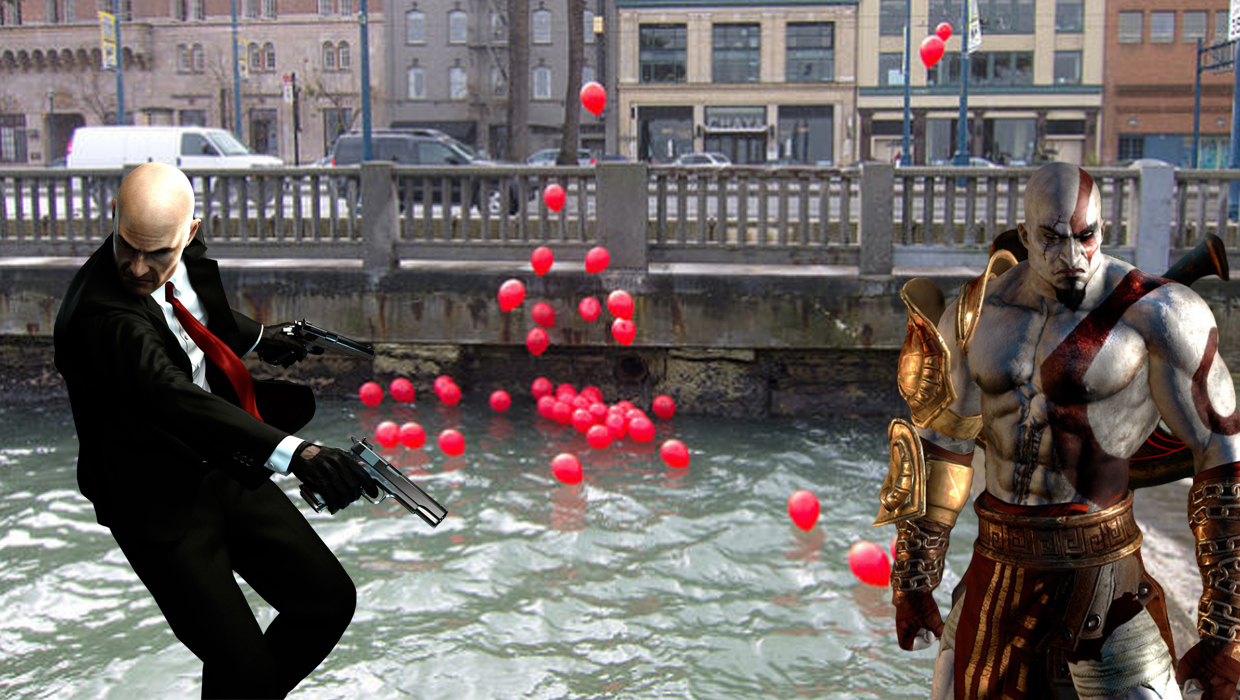
Marketing is important to all forms of media. We're bombarded with literally thousands of billboards, TV commercials, magazine print ads--all types of advertising every day. If done right, we remember a great slogan forever, like Nike's "Just do it" or Disneyland's "Happiest place on earth."
But when a marketing campaign doesn't go as planned, we remember it for all the wrong reasons. Sometimes companies make claims they can't back up, plan a stunt that just doesn't work, or fail to go viral with a weird art display. Whether we see them online or in person, their screw-ups live on in infamy. These video game marketing campaigns are the most bizarre of the bunch, starting with...
Daikatana made a ballsy statement
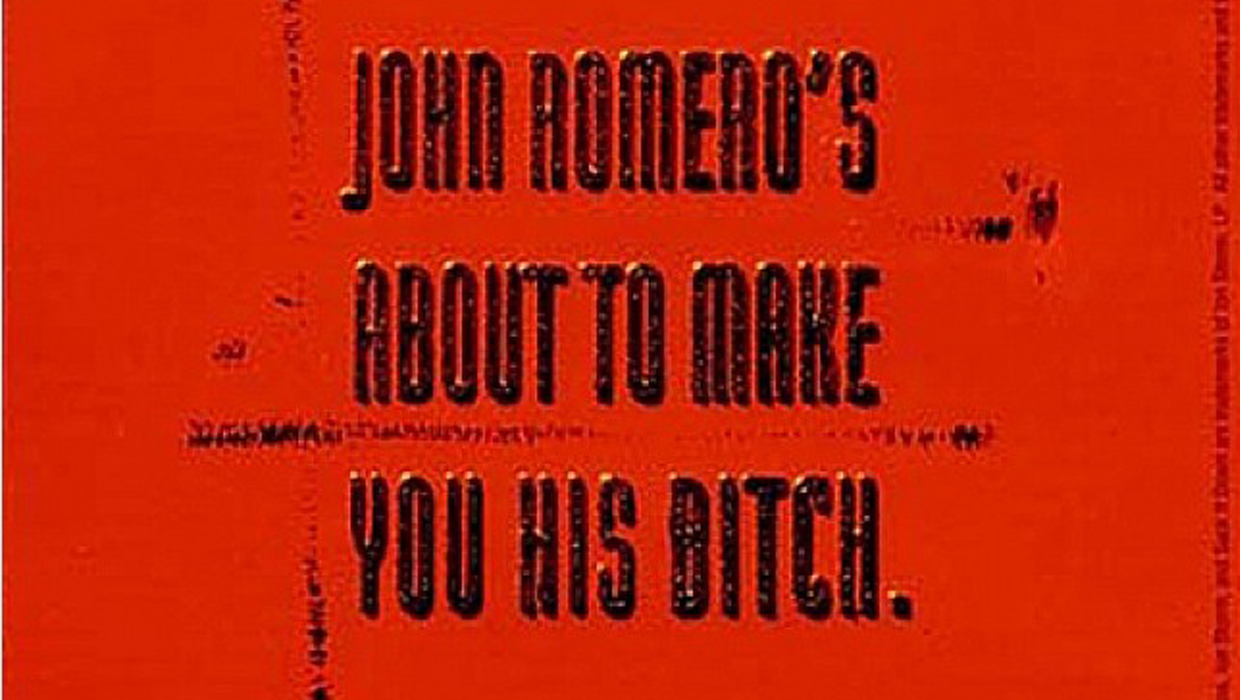
The campaign: For those who missed out on this lovely PC title in 2000, here's the quick pitch: rival samurai clans battle it out in the future. Sounds cool, right? And it's from John Romero, the guy who made Doom, so you know he knows his games. That's exactly why he hyped up Daikatana with the PG-rated ad you see above. Sure, it's not that vulgar, but it's quite a claim for any game to make.
The result: Total shame for Romero--the game sucked, and his claim was unfounded. No bitches here.
Dead Space 2 scared your mom

The campaign: "Hey kids--everything your mom hates is cool! She says you can't play scary games because they're too icky. What a loser!" That was basically the premise of Dead Space 2's ad campaign, which plopped mom down in front of the game's scariest, goriest moments so we could watch them react with disgust. Totally radical, right?
The result: Every Dead Space game has an understandably strong M rating, but the ads seemed to target boys in their teens and younger. The ESRB was called out for allowing such advertising to be broadcast. Whoops.
Bethesda wanted to name your kid Dovahkiin
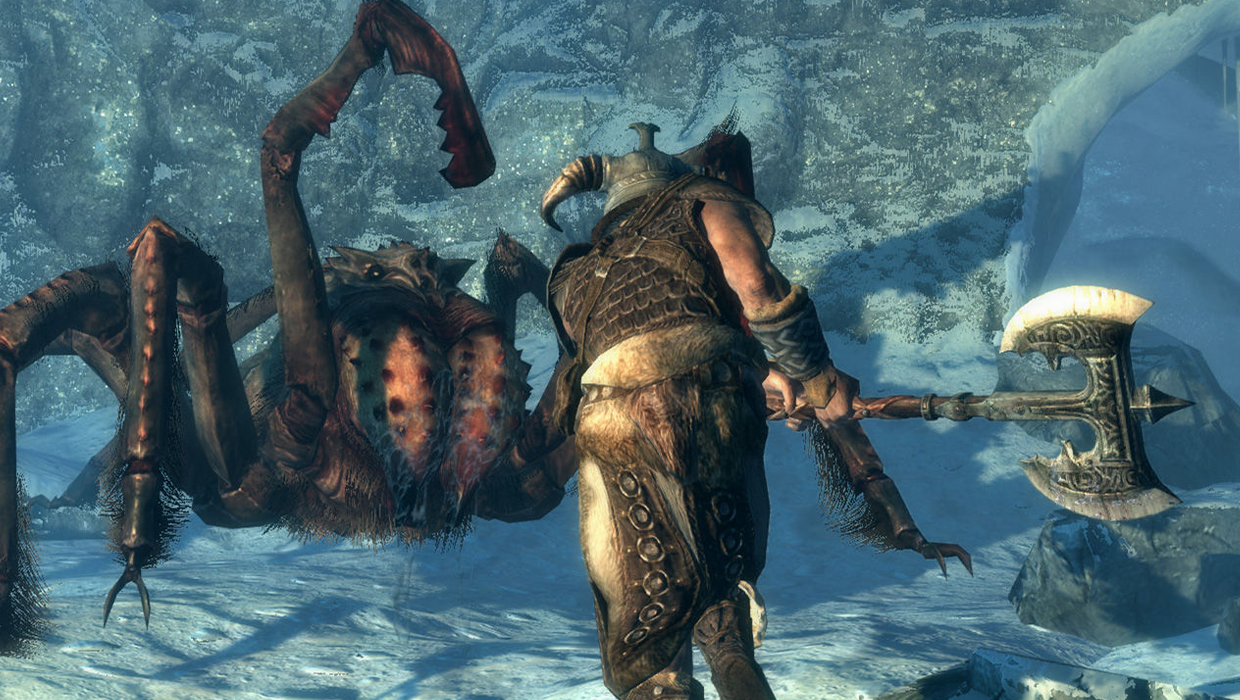
The campaign: Skyrim released on 11/11/11--a people of all regions can actually read the same way. But that special launch date wasn't enough for developer Bethesda. To generate more buzz, it offered a lifetime supply of all its current and future games to any parents who would name their child "Dovahkiin," meaning "dragonborn." But here's the twist: The birth must be on the same day as the Skyrim release. It was a nice prize Bethesda probably figured couldn't be won.
Weekly digests, tales from the communities you love, and more
The result: One couple totally had a kid that day and named him Dovahkiin. Way to set him up for a lifetime of bullying, guys.
Homefront balloons polluted the San Francisco Bay
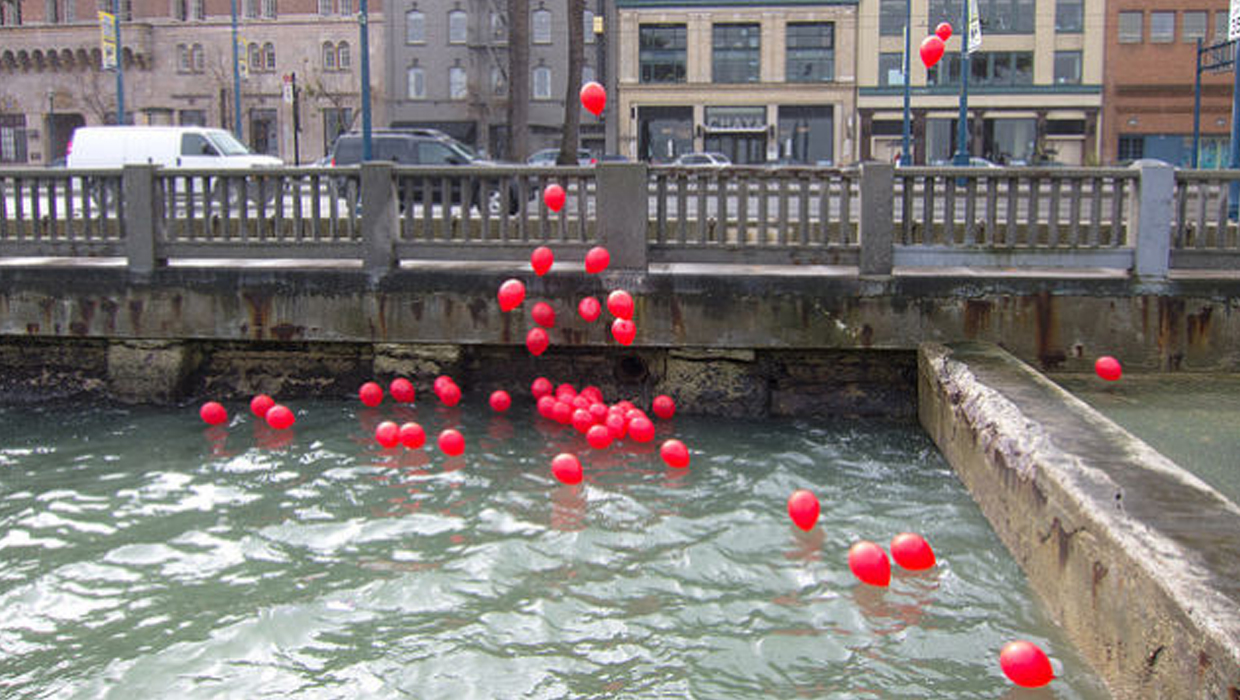
The campaign: Homefront is the story of North and South Korea uniting to invade the United States--think 80s flick Red Dawn (the devs promoted it that way, after all), minus the Russians. When I think Communism, I think red. What's red? A balloon! What I'm getting at is that Homefront publisher THQ decided to promote the game by releasing hundreds of red balloons over the city of San Francisco.
The result: Those lovely balloons rose and deflated, landing right in the bay. THQ had to send out cleanup crews before the they caused dolphins to choke to death.
Zynga dropped money on New York City

The campaign: THQ had balloons in San Francisco, and Zynga had counterfeit cash in New York City. As a bit of viral marketing, the company took fake dollar bills and glued them to city sidewalks. It's unclear what the goal was here, especially since Zynga's Facebook titles, like Mafia Wars and Farmville, were already played by millions.
The result: Just like the balloons, the fake Zynga bucks had to be removed by the sanitation department. Fun fact: it is illegal in New York to attach print ads to the sidewalks. Ba-Zynga. (That hurt to write.)
Nokia N-Gage got sexy
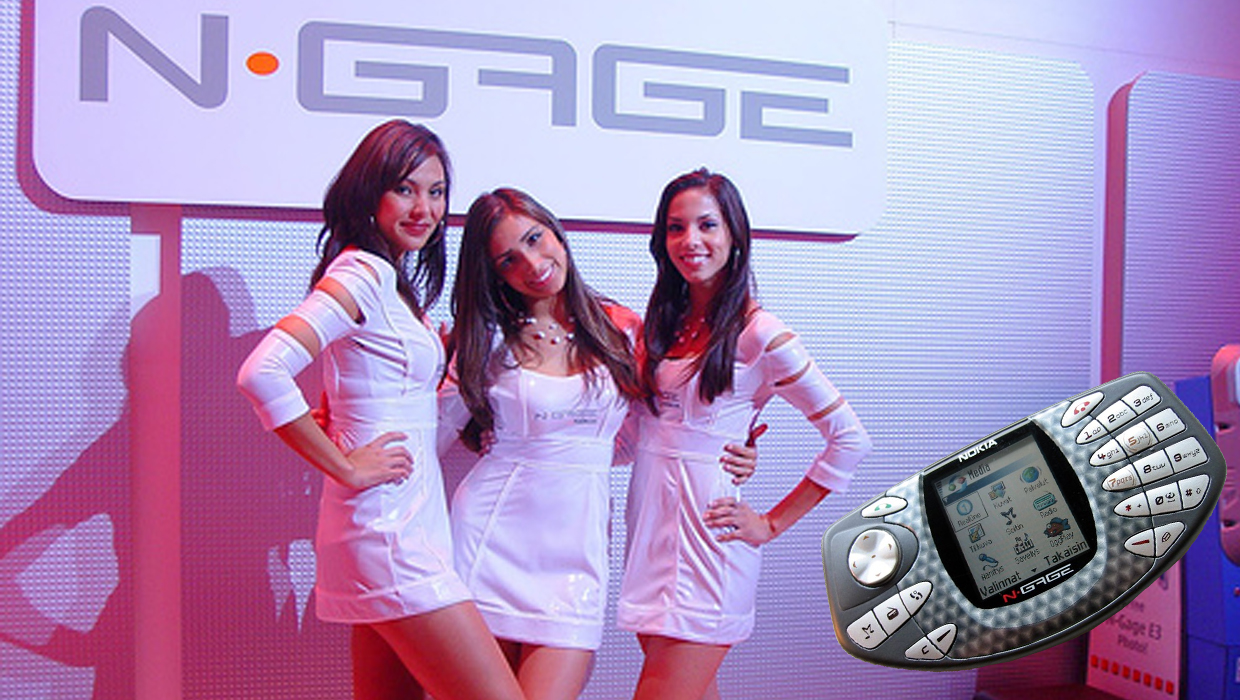
The campaign: Back in 2003, cell phone company Nokia decided to try its hand in the handheld market with the N-Gage--part cell phone, part gaming device, all awkward. To ease that awkwardness, Nokia turned up the heat at E3 with some lovely booth babes, who paraded around in little clothing, with the N-Gage's price crudely written on their torsos. Objectification? Check.
The result: Raise your hand if you actually own an N-Gage. Obviously I can't see your hand through the internet, but I'm willing to bet it's not up. The campaign was sexist, and the device completely flopped.
Dante's Inferno sinned and self-protested
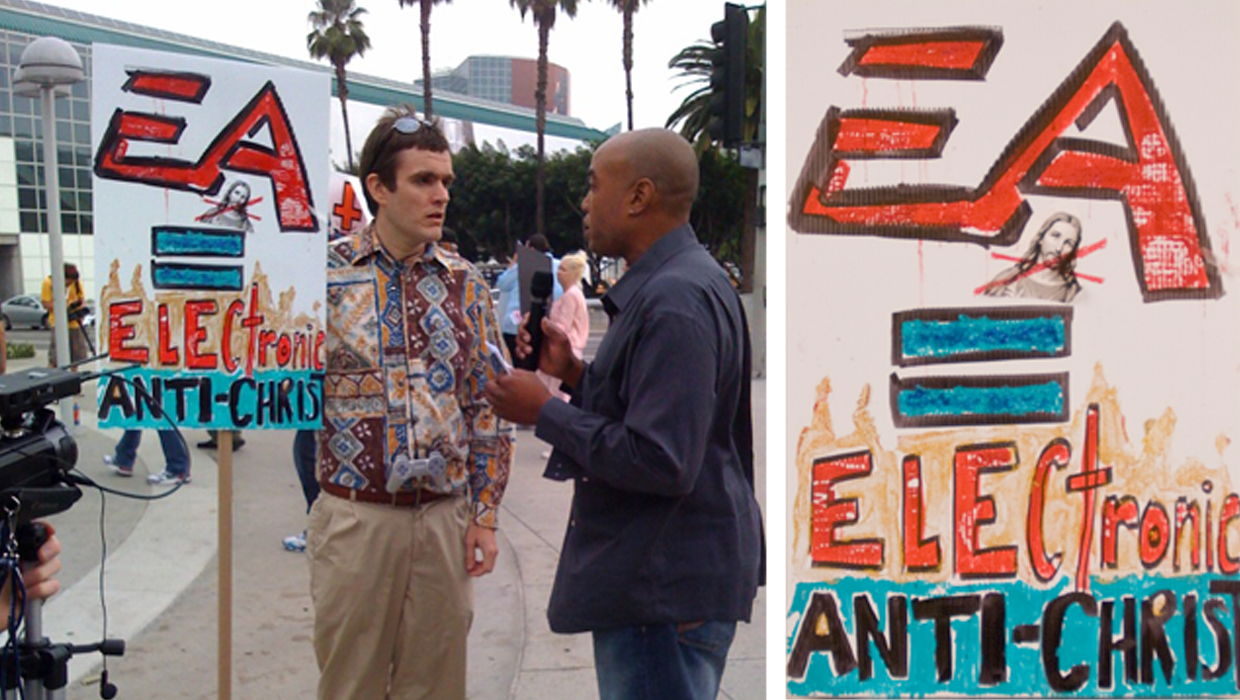
The campaign: The marketing scheme for EA's video game adaptation of historical poem The Divine Comedy (which begins with Inferno) had two parts. Part one: a "sin to win" contest at Comic-Con, which asked attendees to--this is the real quote--"commit acts of lust" with booth babes. Uh... Part two: fake a Christian protest at E3. EA hired actors to picket the event, claiming that the game made light of Hell and their faith.
The result: "Sin to win" just meant "take pictures with the models," but that didn't stop convention-goers from (rightfully) complaining about the distasteful campaign all over Twitter. As for the protest, the farce was discovered, leading to an actual protest by Christians, who weren't exactly thrilled about being mocked. Third time's the charm, EA.
God of War 3 sacrificed a goat
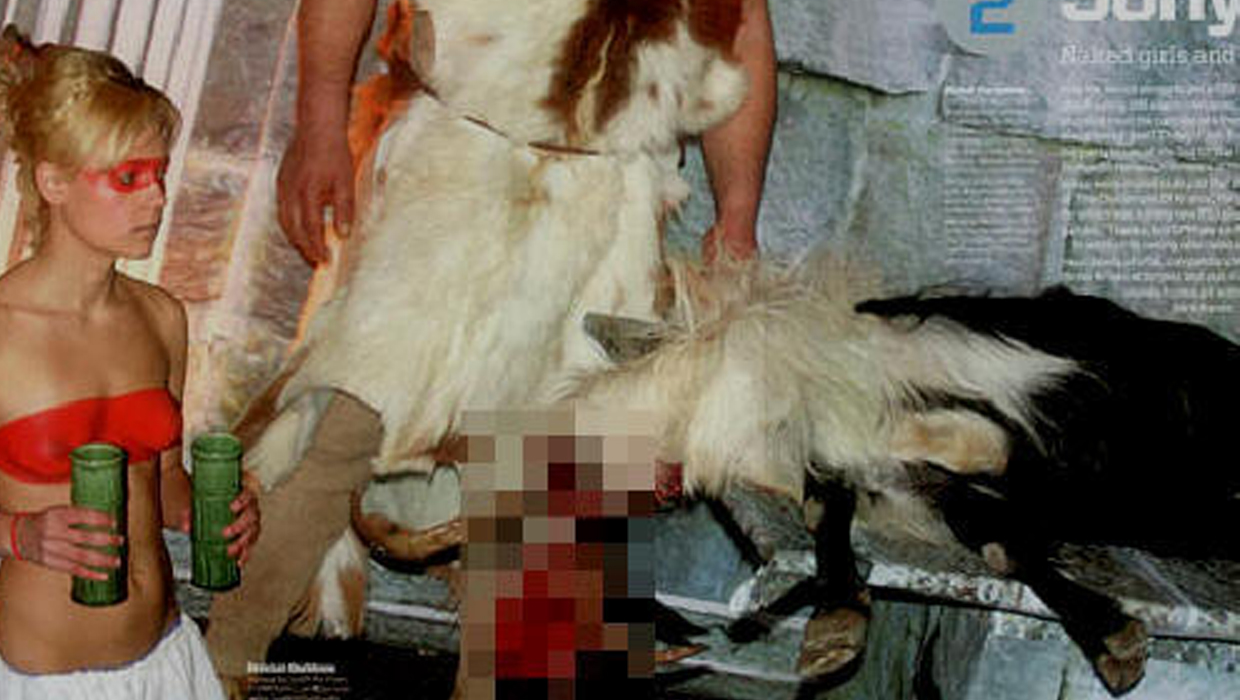
The campaign: It's hard to talk about Dante's Inferno without mentioning God of War--Inferno totally copied Kratos' style, including an identical chest-opening move--so here we go. When God of War 3 released, Sony held a launch party in Greece. And this one had everything: booze, food, party favors, and a very real decapitated goat. Wait, what? You read that right. Sony had a "goat sacrifice" on display as the party's centerpiece.
The result: Where there are dead animals, there are animal rights activists. Sony caught a lot of flack for this gory party display and promptly returned the goat to butcher who performed the beheading.
Splinter Cell: Conviction got the cops called
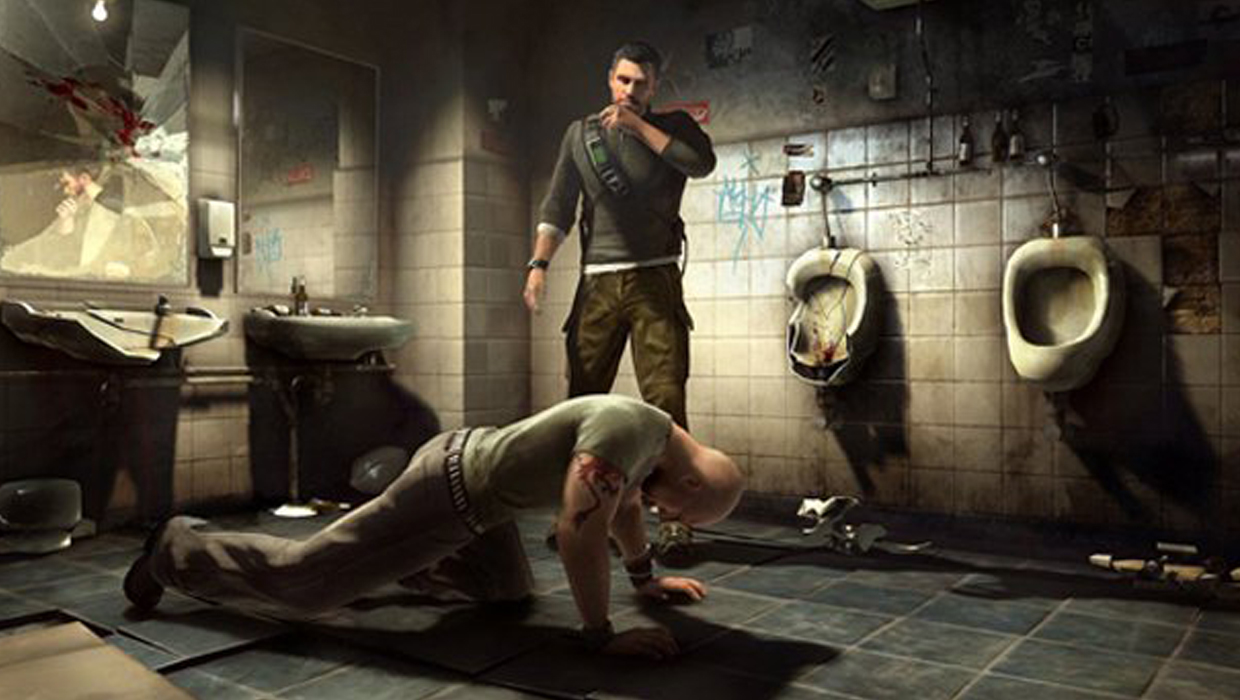
The campaign: Picture this: You're chilling in a New Zealand bar, knocking back a few brews and having a good time. Suddenly, a man bursts into the bar, brandishing a gun in his bandaged hands. He starts walking around, threatening the patrons with his weapon. Confusion is quickly replaced by utter panic when he starts walking toward you. Oh, and by the way, he's a paid actor whose presence is somehow meant to promote Splinter Cell: Conviction. Seriously, what the Dante's Inferno-protested hell was Ubisoft thinking?
The result: Some guy brought a (fake) gun into a bar. What do you think happened? When the cops arrived, they didn't even know the gun wasn't real until they examined it closely. The guy was lucky he only got a stern warning.
Tony lives in Maryland, where he writes about those good old-fashioned video games for GamesRadar+. His words have also appeared on GameSpot and G4, but he currently works for Framework Video, and runs Dungeons and Dragons streams.


